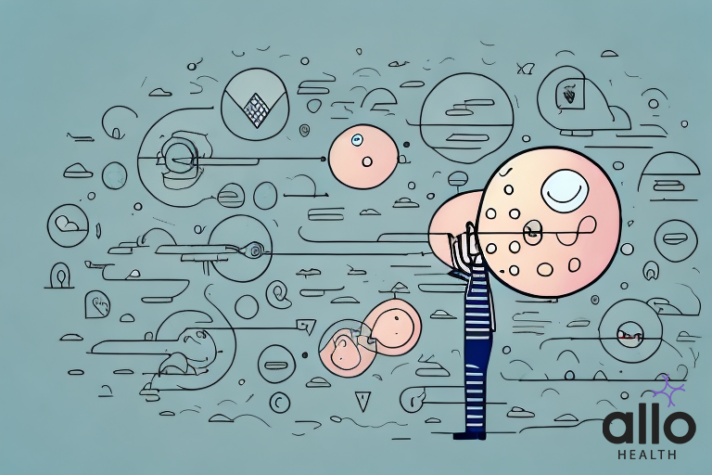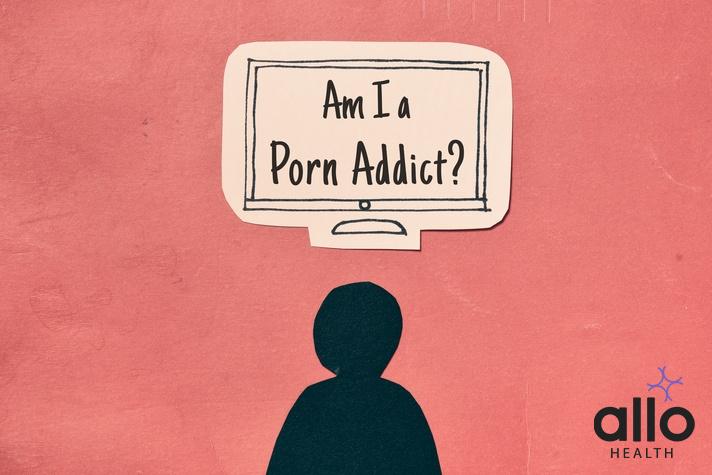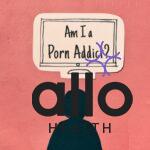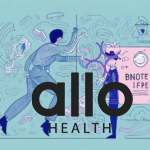How To Stop Porn and Masturbation Addiction?

Allo Health is dedicated to personalized well-being, offering support and trusted information tailored to individual health goals. The platform emphasizes human-generated content, led by a distinguished medical team of experts, including physicians and sexual health specialists. Their commitment to credibility involves rigorous fact-checking, authoritative research, and continuous updates to ensure accurate, up-to-date information. Allo Health's unique approach goes beyond conventional platforms, providing expert-led insights and a continuous commitment to excellence, with user feedback playing a crucial role in shaping the platform's authoritative voice.

Dr Sanina Mansoor holds MBBS degree from Yenepoya university,Mangalore.She has 8 years of experience working as a medical officer at various health centres and medical colleges.
Why This Was Upated?
Our experts continually monitor the health and wellness space, and we update our articles when new information became available.
Updated on 17 January, 2024
- Article was updated as part of our commitment to diversity, equity, and inclusion.

"The following blog article may discuss medical treatments and interventions. However, it is important to note that the information provided is for general educational purposes only and should not be considered as a substitute for professional medical advice, diagnosis, or treatment. Always seek the guidance of a qualified healthcare professional for personalized medical advice.
Book consultation
Medical treatments are complex and should be tailored to individual circumstances. The information presented in this blog may not be applicable to everyone, as each person's medical condition, history, and needs are unique. Only a qualified healthcare professional can evaluate your specific medical situation, consider relevant factors, and provide appropriate recommendations for diagnosis, treatment options, and monitoring.
It is crucial to note that self-diagnosis, self-medication, or relying solely on the information provided in this blog for treatment decisions can have serious health consequences. "
Porn and masturbation addiction is a serious concern that affects a significant number of people around the world. It can lead to a range of negative effects on physical and mental health, including low self-esteem, depression, and anxiety. If you are struggling with porn and masturbation addiction, it is essential to seek help and take proactive measures to overcome it. In this article, we will discuss a step-by-step guide to help you stop porn and masturbation addiction and live a healthier, happier life.
What Is Porn Addiction?
Porn addiction, also known as compulsive sexual behavior or problematic pornography use, is a term used to describe a pattern of behavior where an individual engages in excessive, often compulsive, consumption of pornography. It is considered a type of behavioral addiction and is not officially recognized as a distinct mental health disorder in many diagnostic manuals, such as the Diagnostic and Statistical Manual of Mental Disorders (DSM-5).
Here are some key aspects of porn addiction:
- Compulsive Behavior: Individuals with porn addiction often engage in the consumption of pornographic material in a compulsive and uncontrollable manner. This behavior may interfere with their daily life, work, and relationships.
- Escalation: Over time, individuals with porn addiction may find that they need to consume more explicit or extreme forms of pornography to achieve the same level of arousal or satisfaction. This can lead to a cycle of escalation.
- Impact on Daily Life: Porn addiction can have negative effects on various aspects of an individual’s life. It may lead to difficulties in forming and maintaining healthy relationships, impair work or academic performance, and contribute to feelings of guilt, shame, or anxiety.
- Loss of Control: People with porn addiction often report a sense of loss of control over their behavior. Despite negative consequences, they may find it challenging to cut down or control their consumption of pornography.
- Withdrawal Symptoms: Some individuals may experience emotional or psychological withdrawal symptoms when attempting to reduce or stop their consumption of pornography. These symptoms can include irritability, anxiety, or mood swings.
- Interference with Daily Activities: Porn addiction can interfere with daily activities and responsibilities. Individuals may spend excessive amounts of time viewing pornography, neglecting other important aspects of their lives.
It’s important to note that not everyone who consumes pornography is addicted to it. Many people use pornography without experiencing negative consequences or it negatively impacting their lives. However, when the consumption becomes compulsive and starts causing significant distress or impairment in functioning, it may be indicative of a concern.
If someone is concerned about their pornography consumption or its impact on their life, seeking help from mental health professionals, such as psychologists or therapists, can be beneficial. Treatment approaches may include cognitive-behavioral therapy, support groups, and other therapeutic interventions aimed at addressing the underlying concerns contributing to the addiction.
What Is Masturbation Addiction?

“Masturbation addiction” is not a recognized medical or psychological term, and it’s important to clarify that masturbation itself is a normal and healthy sexual activity for most individuals. It becomes a concern when it interferes with daily functioning, relationships, or causes distress. In the absence of a specific diagnosis for “masturbation addiction,” what is often referred to are concerns related to compulsive or problematic masturbation.
Here are some key points related to compulsive or problematic masturbation:
- Compulsive Behavior: Like other behavioral addictions, problematic masturbation involves engaging in the behavior in a compulsive and often uncontrollable manner. Individuals may find themselves repeatedly engaging in masturbation to the detriment of other aspects of their life.
- Interference with Daily Life: When masturbation becomes a predominant focus to the detriment of daily responsibilities, relationships, work, or other important activities, it may be considered problematic. If someone spends an excessive amount of time engaging in masturbation, to the point where it interferes with their ability to function in other areas of life, it could be a cause for concern.
- Distress and Impairment: The key criterion for any behavioral addiction is that the behavior causes significant distress or impairment. If an individual feels distressed about their masturbation habits, experiences negative consequences in their life, or is unable to control or reduce the behavior despite wanting to, it may be indicative of a concern.
- Underlying concerns: Problematic masturbation may be a symptom of underlying psychological or emotional concerns. It could be linked to stress, anxiety, depression, or difficulties in interpersonal relationships. Understanding and addressing these underlying concerns are crucial in addressing the problematic behavior.
- Professional Help: If someone is concerned about their masturbation habits and believes it is negatively impacting their life, seeking help from mental health professionals is advisable. Therapists or psychologists can help individuals explore the underlying concerns, develop coping strategies, and work towards healthier patterns of behavior.
It’s important to approach the topic with sensitivity and recognize that cultural, religious, and personal beliefs can influence individual perspectives on masturbation. What might be considered problematic for one person may not be for another. The key is to assess whether the behavior is causing distress or impairment and, if so, to seek appropriate professional guidance and support.
How To Stop Porn and Masturbation Addiction?
Overcoming porn and masturbation addiction involves a combination of self-help strategies, behavioral changes, and, in some cases, professional support. It’s important to note that overcoming addiction is a gradual process, and individuals may find different approaches effective. Here are some detailed steps that may help:
- Acknowledge the concern: Recognize and admit that there is a concern. Acknowledging the concern is the first step towards making positive changes.
- Set Clear Goals: Define specific and achievable goals for reducing or eliminating porn and masturbation from your life. Setting clear objectives helps you track progress and stay motivated.
- Educate Yourself: Learn about the potential negative effects of excessive porn and masturbation. Understanding the impact on mental health, relationships, and overall well-being can reinforce your motivation to change.
- Seek Professional Help: Consider seeking support from a mental health professional, such as a therapist or counselor, who can provide guidance, support, and strategies tailored to your specific situation.
- Install Content Filters: Use content filters or parental control software to block access to explicit content. This can serve as a practical barrier to reduce the likelihood of engaging in the behavior.
- Create a Support System: Share your goals with supportive friends, family, or a support group. Having a support system can provide encouragement, understanding, and accountability.
- Identify Triggers: Identify situations, emotions, or specific triggers that lead to the desire to engage in porn or masturbation. Developing awareness of these triggers allows you to find alternative coping strategies.
- Replace the Behavior: Replace the habit with healthier activities. Engage in hobbies, exercise, or activities that bring a sense of fulfillment and pleasure without resorting to porn or masturbation.
- Establish a Routine: Create a structured daily routine. Having a schedule can help reduce idle time, making it less likely for impulsive behaviors to occur.
- Practice Mindfulness: Learn mindfulness techniques to stay present in the moment and manage cravings. Mindfulness can help you observe thoughts and urges without acting on them.
- Monitor Progress: Keep a journal to track your progress, setbacks, and the strategies that work best for you. Regular self-reflection can help you stay focused on your goals.
- Celebrate Milestones: Celebrate your achievements along the way. Recognizing and rewarding yourself for progress, no matter how small, can reinforce positive behavior.
- Stay Patient and Persistent: Overcoming addiction is a gradual process. Be patient with yourself, and if you face setbacks, use them as learning opportunities rather than reasons to give up.
- Consider Group Therapy or Support Groups: Joining a group therapy session or a support group with individuals facing similar challenges can provide a sense of community and shared experiences.
It’s important to tailor these strategies to your individual needs and seek professional help if the addiction is significantly impacting your life. A mental health professional can provide personalized guidance and support throughout the recovery process.
Treatment For Porn and Masturbation Addiction
Individuals struggling with porn and masturbation addiction may benefit from a combination of self-help strategies and professional interventions. It’s important to note that seeking professional help is a positive and effective step toward recovery.
- Therapeutic Interventions:
- Cognitive-Behavioral Therapy (CBT): CBT is a widely used therapeutic approach that helps individuals identify and change unhealthy thought patterns and behaviors. It can be effective in addressing distorted beliefs related to sex, relationships, and self-worth.
- Mindfulness-Based Approaches: Mindfulness techniques, such as mindfulness meditation, can help individuals develop awareness of their thoughts and impulses without judgment. Mindfulness can be a valuable tool in managing cravings and breaking the cycle of addiction.
- Individual or Group Therapy: One-on-one counseling or group therapy sessions provide a supportive environment for individuals to explore the underlying concerns contributing to their addiction. Sharing experiences with others facing similar challenges can reduce feelings of isolation.
- Professional Counseling: Seeking the guidance of a licensed therapist or counselor who specializes in sexual addiction or compulsive behaviors is crucial. These professionals can assist in identifying triggers, addressing emotional concerns, and developing coping strategies.
- 12-Step Programs: Participating in 12-step programs, such as Sex Addicts Anonymous (SAA) or Sex and Love Addicts Anonymous (SLAA), can offer a structured and supportive framework for recovery. These programs involve working through a series of steps, attending meetings, and connecting with a supportive community.
- Medication: In some cases, medication may be prescribed to address co-occurring mental health concerns, such as anxiety or depression, that may contribute to addictive behaviors. It’s important for individuals to consult with a psychiatrist to determine the appropriateness of medication.
- Supportive Lifestyle Changes: Making positive lifestyle changes is essential for recovery. This may include adopting a healthier diet, regular exercise, and sufficient sleep. Engaging in fulfilling activities and building a strong support system with friends and family contribute to overall well-being.
- Education and Awareness: Understanding the neurobiological and psychological aspects of addiction is empowering. Education about the impact of porn and masturbation on the brain can motivate individuals to make informed choices and commit to the recovery process.
- Relapse Prevention Strategies: Developing relapse prevention strategies is crucial for long-term success. This involves identifying potential triggers, creating a plan for managing cravings, and having a support system in place to prevent setbacks.
- Accountability and Monitoring: Regular check-ins with a therapist or support group, as well as self-monitoring of behavior and progress, are vital components of treatment. Accountability helps individuals stay focused on their goals and address any challenges that may arise.
Remember, the path to recovery is unique for each individual. Combining professional guidance with personal commitment, support, and lifestyle changes increases the likelihood of successfully overcoming porn and masturbation addiction.
Most Asked Questions
-
What steps can I take to stop porn and masturbation dependancy by myself?
Identifying the trouble is step one. Set clear, attainable desires, educate yourself about the bad influences, and create a support device. Install content filters, update the conduct with more healthy sports, and practice mindfulness. Monitor your progress, have fun achievements, and stay affected person and chronic at some point of the manner.
-
Is expert help important to overcome porn and masturbation dependancy?
While self-help techniques may be effective, searching for expert help is advisable for tailored steering. A therapist or counselor can provide help, coping strategies, and deal with underlying troubles contributing to the addiction. Professional help can appreciably decorate your probabilities of successful recovery.
-
How can I manage triggers that cause porn and masturbation addiction?
Identify precise triggers including emotions or situations that activate the conduct. Develop alternative coping techniques, interact in mindfulness strategies, and update the habit with healthier activities. Understanding and handling triggers are vital steps in breaking the cycle of dependancy.
-
Are there practical gear to save you access to explicit content material?
Yes, using content filters or parental control software program can function sensible barriers. These tools block get admission to to explicit content material, making it more difficult to have interaction in the behavior. Implementing such measures supports your efforts to create a more healthy environment.
-
What function does a established habitual play in overcoming addiction?
Creating a structured each day habitual enables reduce idle time, minimizing the possibility for impulsive conduct. A agenda affords a feel of order and purpose, making it easier to live centered for your goals. Incorporating ordinary into your daily lifestyles is a realistic strategy for coping with and overcoming addiction.






































